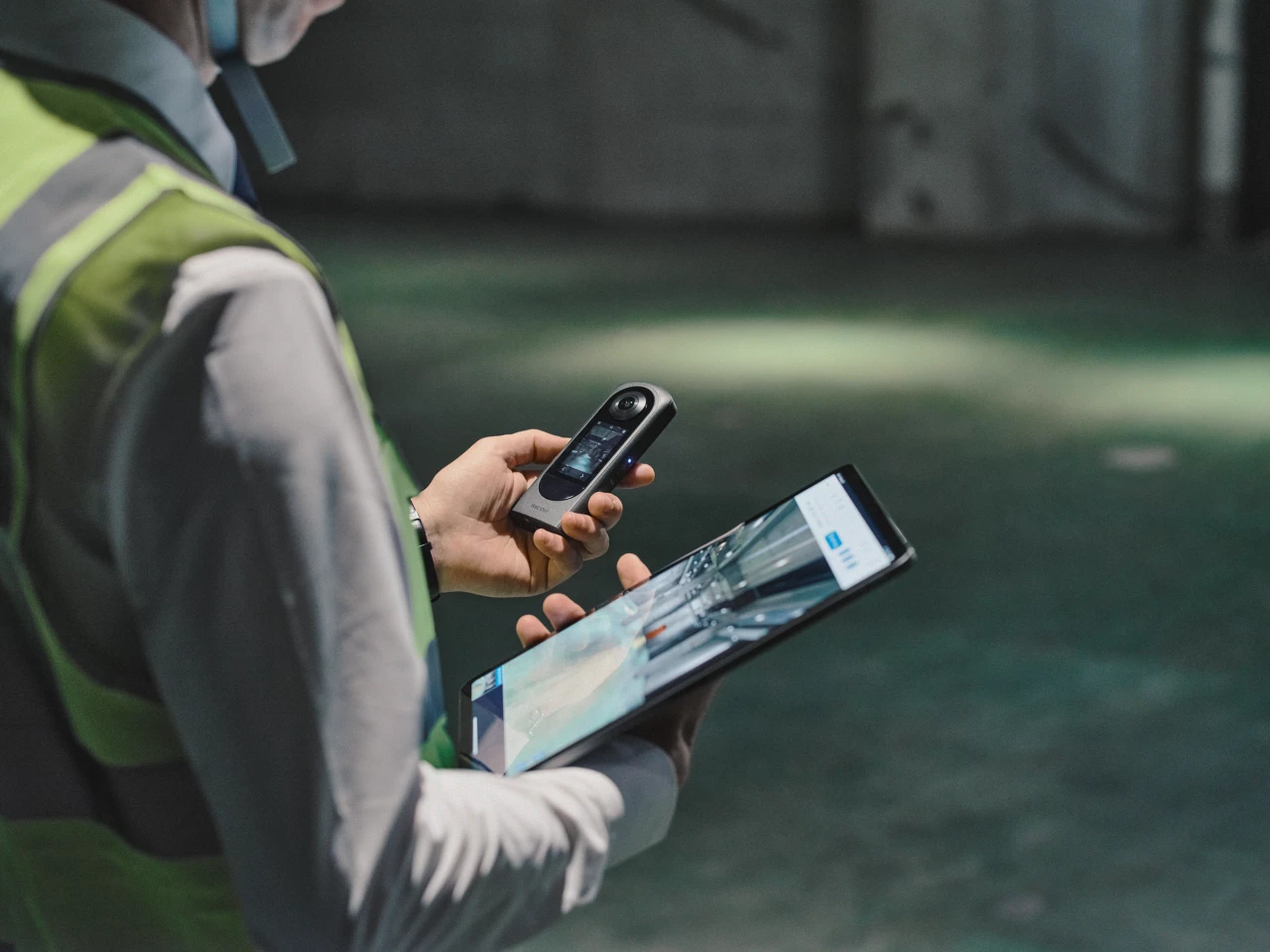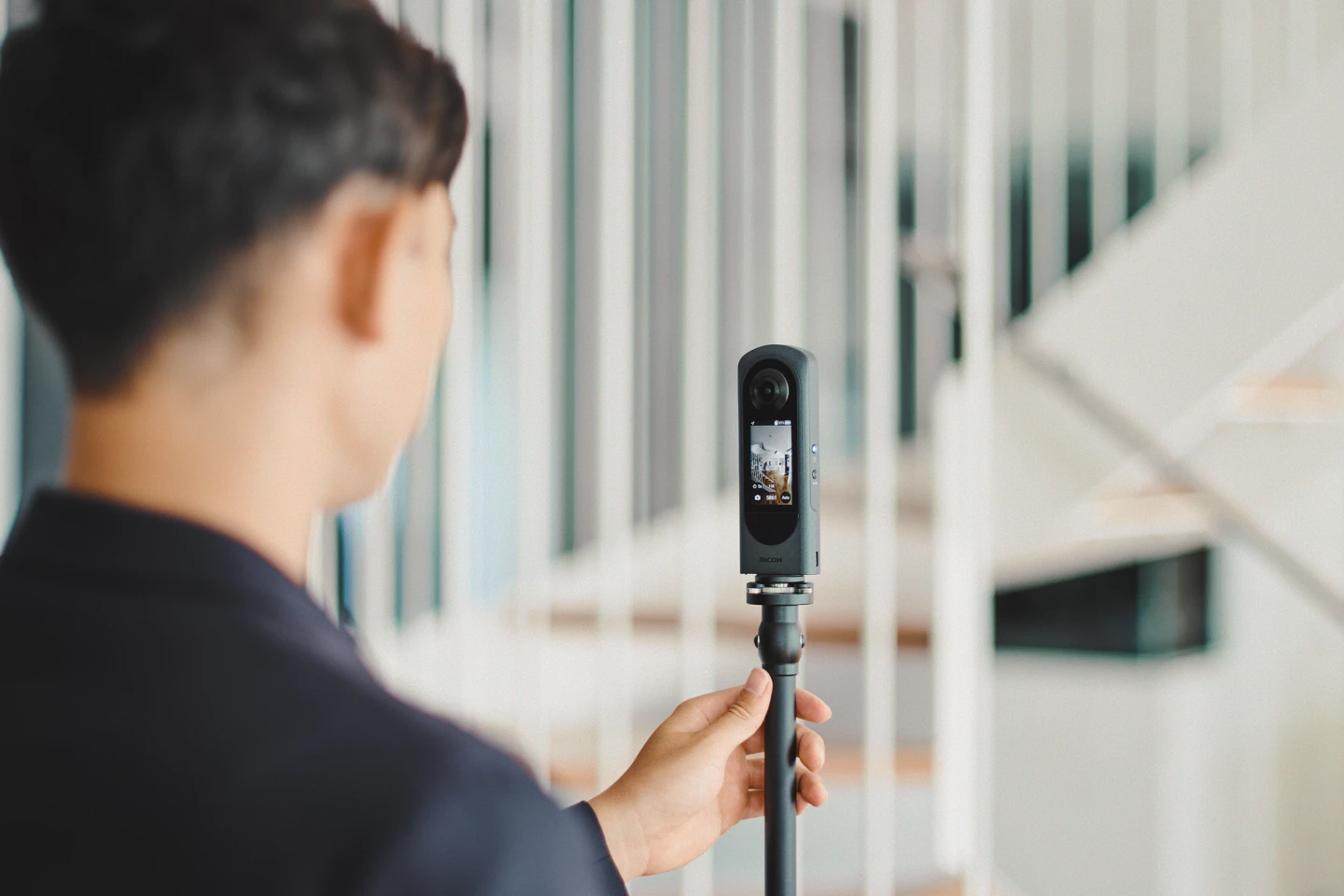In March 2020, Ricoh spun out its Theta 360-degree camera division to create a new line of devices, and subsequently launched the first model in September. However the move was fairly short-lived and Vecnos Inc closed its doors in December of last year. Now Ricoh has announced the next chapter in the Theta story with a March release window for the brand new Theta X.
The Theta line of pocket cameras essentially allows users to capture the world around them and post spherical panorama images or videos to social media channels where viewers can change their perspective within the captured bubble with the swipe of finger or click of a mouse.
Ricoh's first attempt took the form of a rather clunky concept shown at CES 2013, but later that year the company's designers had managed to get rid of the hammerhead camera wings for a much improved production model called the Theta. The form factor remained pretty much the same over a number of new model releases before Ricoh announced that the development team would spin out into a new company called Vecnos Inc.
The camera technology was slimmed down and crammed into something that had the look of a neuralyzer from Men in Black, and was named IQUI. But the so-called "Visual Revolution" was relatively short-lived, and Vecnos ceased to be in December 27 2021.

Now Ricoh has returned to the original Theta shape for the X but added some choice upgrades that should make the experience much less reliant on a smartphone.
The first item of note is the 2.25-inch color LCD touchscreen at 360 x 640 dots on the device's magnesium alloy body. This not only allows the user to preview scenes before capture, but shooting settings can be adjusted, there's a touch shutter function, status info is visible on the device and captured images can be view ahead of transfer to a smartphone for upload to social media or linking with Ricoh's image sharing services. Exposure and white balance can also be adjusted ahead of 4K or 2K livestreaming (there's an integrated mono microphone too).
Ricoh has made pairing with a smartphone easier too, and users will no longer need to enter a device SSID to establish a Bluetooth connection. Wireless content transfer is said to be faster thanks to the use of multiple antennas, and real-time processing is available as well, including top/bottom correction while capturing 360-degree video content.
The 48-megapixel CMOS sensor is reckoned capable of outputting a spherical still image at a resolution of around 60 megapixels, with two sizes available – a general scenario 5.5K still and an 11K still for brightly-lit scenes. On the video front, users can expect stabilized 30-frames-per-second shooting at 5,760 x 2,880 resolution. And real-time onboard stitching should ease the 360-degree video processing load on computers.

The Theta X runs an operating system based on Android, which means that third-party developers can go wild with plugins to extend functionality. The device comes with 46 GB of internal storage, but for the first time in a Theta users can slot in a microSD card to expand storage capacity. It's also supplied with one interchangeable battery but users can opt for second or third DB-110 battery to keep the 360-degree party going while out and about.
Elsewhere, the F2.4 lenses comprise seven elements in seven groups, light sensitivity is ISO50 to 3,200, a shutter speed of 1/16,000 second is possible, and HDR and noise reduction functionality is included. Bluetooth 5.0 and 802.11ac Wi-Fi are cooked in, there's built-in GPS for geotagging potential, and a USB-C port to the side allows for power to be supplied to the device while mounted to a tripod or selfie stick.
The Theta X is expected to go on sale from March for US$799, an optional lens cap is also available. The video below has more.
Product page: Theta X







